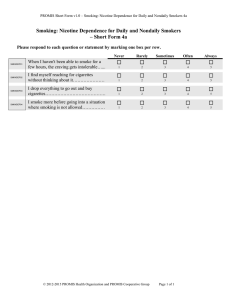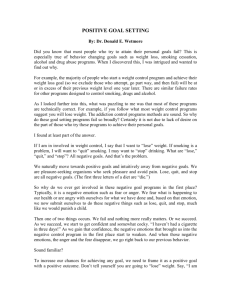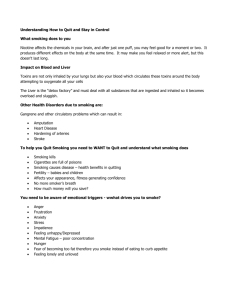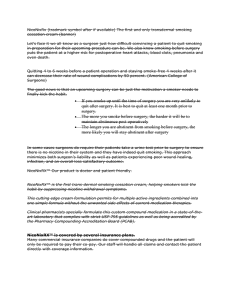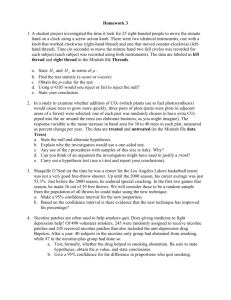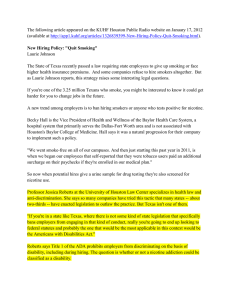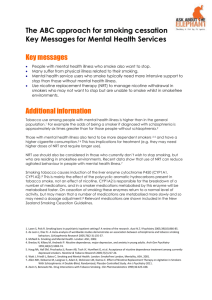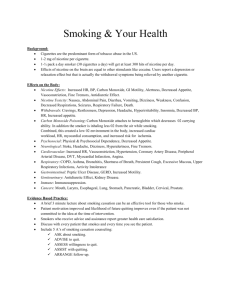The Risks of Smoking and the Spine
advertisement
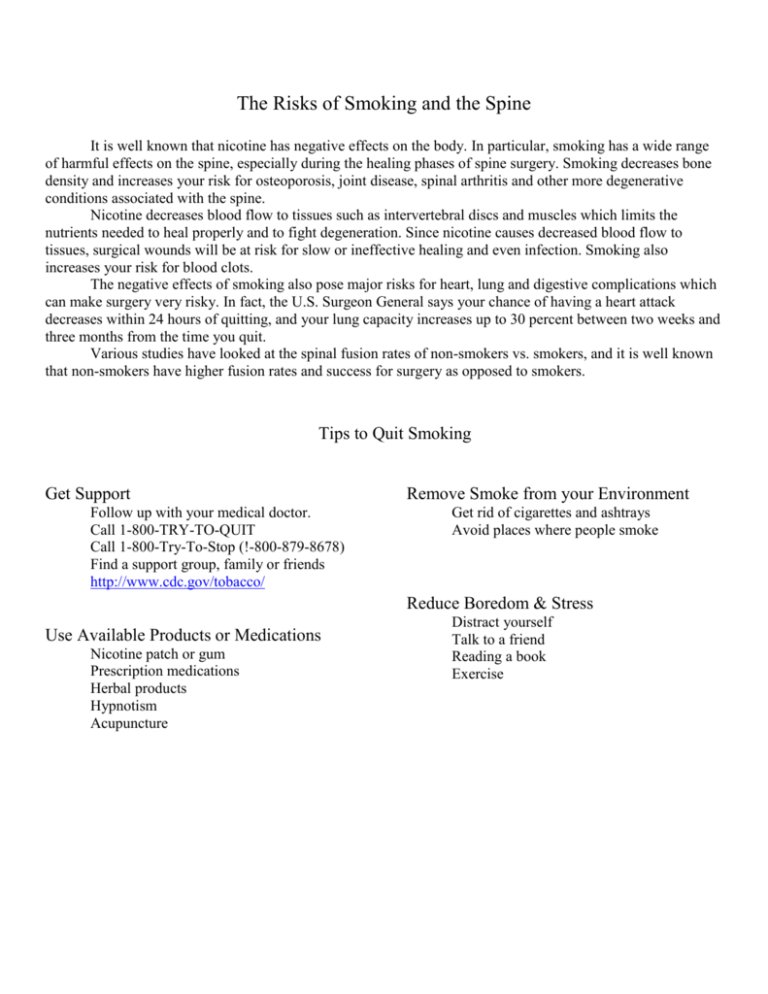
The Risks of Smoking and the Spine It is well known that nicotine has negative effects on the body. In particular, smoking has a wide range of harmful effects on the spine, especially during the healing phases of spine surgery. Smoking decreases bone density and increases your risk for osteoporosis, joint disease, spinal arthritis and other more degenerative conditions associated with the spine. Nicotine decreases blood flow to tissues such as intervertebral discs and muscles which limits the nutrients needed to heal properly and to fight degeneration. Since nicotine causes decreased blood flow to tissues, surgical wounds will be at risk for slow or ineffective healing and even infection. Smoking also increases your risk for blood clots. The negative effects of smoking also pose major risks for heart, lung and digestive complications which can make surgery very risky. In fact, the U.S. Surgeon General says your chance of having a heart attack decreases within 24 hours of quitting, and your lung capacity increases up to 30 percent between two weeks and three months from the time you quit. Various studies have looked at the spinal fusion rates of non-smokers vs. smokers, and it is well known that non-smokers have higher fusion rates and success for surgery as opposed to smokers. Tips to Quit Smoking Get Support Follow up with your medical doctor. Call 1-800-TRY-TO-QUIT Call 1-800-Try-To-Stop (!-800-879-8678) Find a support group, family or friends http://www.cdc.gov/tobacco/ Remove Smoke from your Environment Get rid of cigarettes and ashtrays Avoid places where people smoke Reduce Boredom & Stress Use Available Products or Medications Nicotine patch or gum Prescription medications Herbal products Hypnotism Acupuncture Distract yourself Talk to a friend Reading a book Exercise

